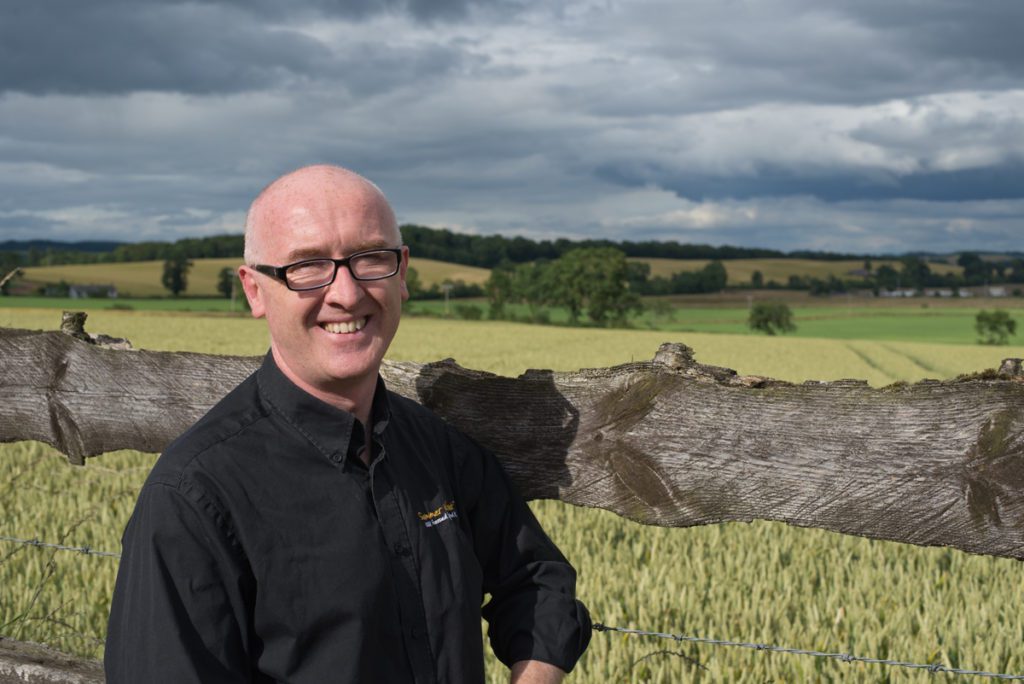Mark Bush does not come from a farming family, and he used to work as an I.T. consultant on a trading floor of an investment bank in London.
Growing up in Brynmawr near Ebbw Vale in Wales, and his father was an electrician in a mine before owning a shop.
But it’s perhaps no surprise Mark is a natural in food retail as both his parents and grandparents were shop owners.
Mark met his wife, Maggie, from a farming family in Crieff, at a friend's birthday party in London before she moved to work as a physiotherapist in private practice and with the London Welsh Rugby club.
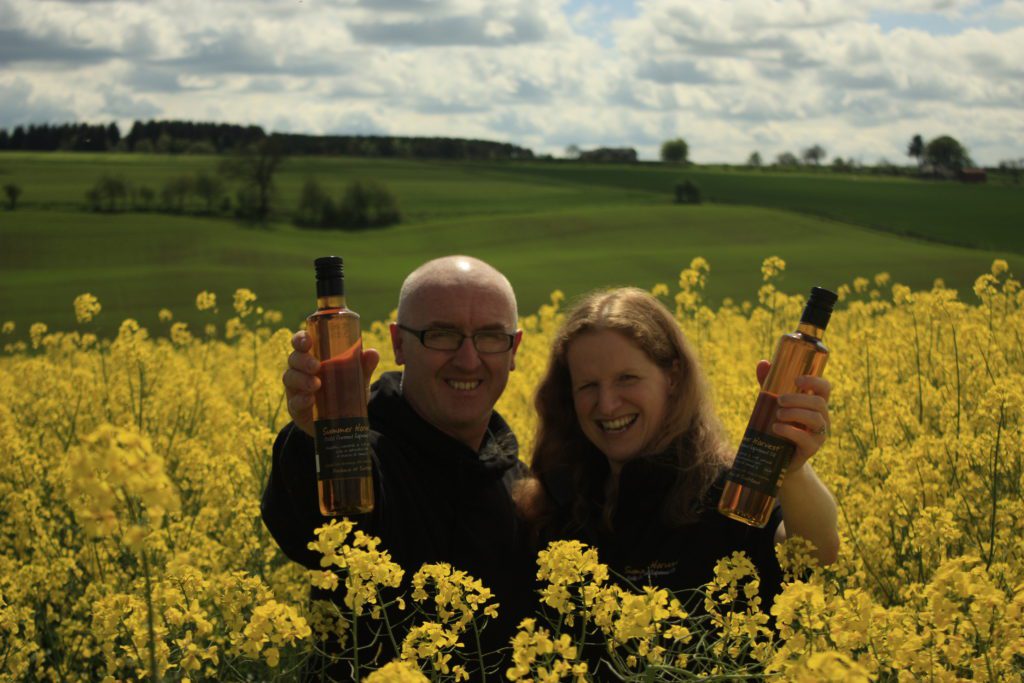
He says: "London is big, noisy, smelly and busy. There are lots of things that don't make it sound good, but it can be fantastic. However, you've never heard of anyone retiring to London, have you."
So, eventually, the couple felt it was time for a change, and when a job in Scotland came along for Maggie in 2007, she jumped at the chance, but was disappointed when she didn't get it.
Despite the disappointment, the pair decided to move north anyway. Maggie worked in a private physiotherapist practice and a year later she secured her dream job working with elite athletes for SportScotland at the Institute of Sport in Stirling.
This saw her travelled across the world, first with the cricket then curling teams, but with a young family she has switched to cover tennis and triathletes which involves less travelling.
Mark explains that a high point came when she returned from the Olympics in Sochi; "I went to pick her up from the airport and there was a piper and all the press taking photographs of the team, but nobody knew you were part of it because you are back room staff. But she loves it and it is amazing to be part of the team effort.."
After the move North Mark began his new career helping out his father in on a mixed arable farm near Crieff.
He had lots to learn, but his father-in-law supported and encouraged him to find a business that would add value to what they were already doing on the farm.
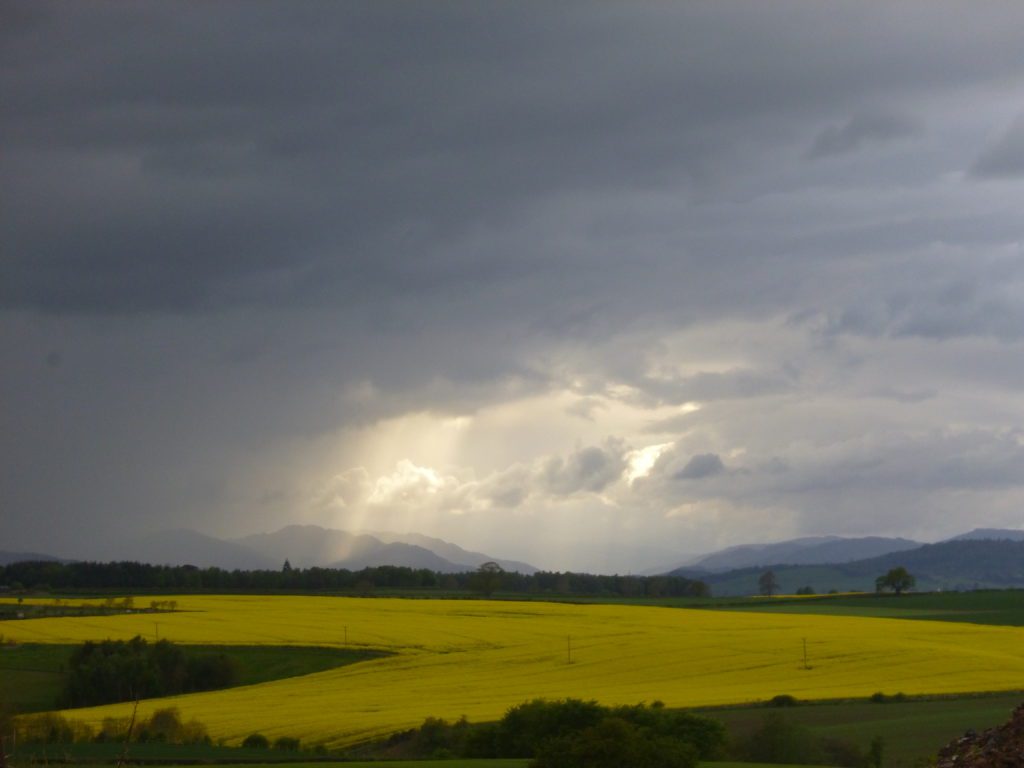
So, initially, Mark began selling potatoes that they had grown. He explains: “I went round the farm shops, markets and restaurants, knocked on the door and asked if they wanted to buy them. I realised really quickly there was a market for selling local produce directly.”
On the farm they also grew oil seed rape and at that time, not many people in Scotland were making cold pressed rapeseed oil so Mark believed that might be worth a try.
To test the market he had some oil seed rape grown at the farm pressed into oil in Morpeth. He then sold that first batch to his existing customers. "I got very good feedback and we sold out before the next harvest."
So in October 2008 he founded Summer Harvest and they haven't looked back since, expanding the range to include dressings, marinades and mayonnaises as well as oil.
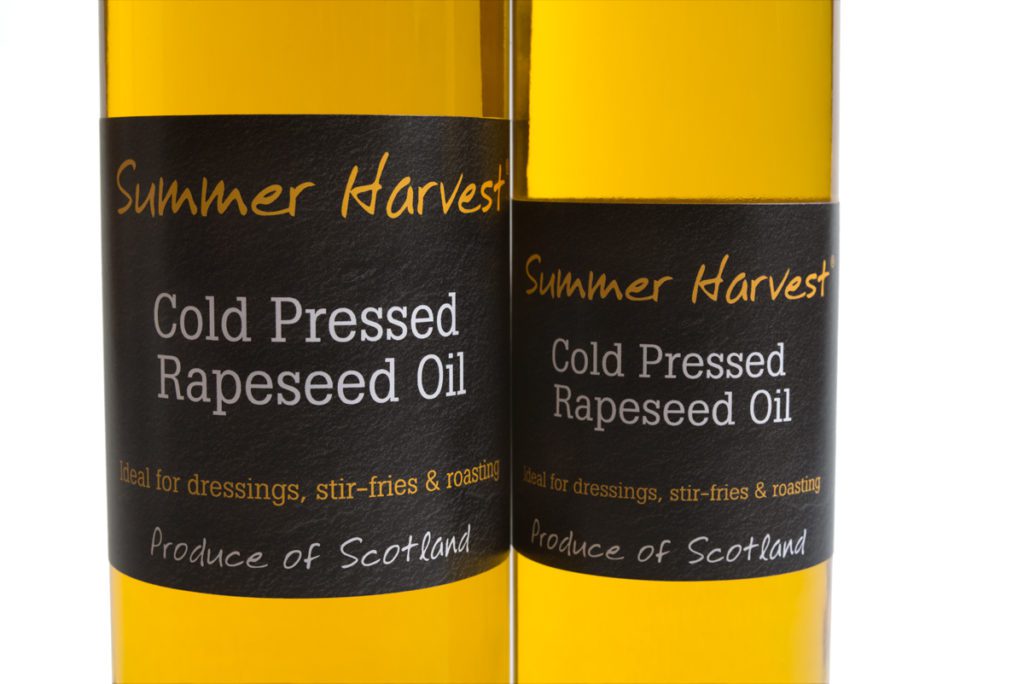
He asked everyone in the family to think of a name for the company.
He had thought of using one of their family names, but his father in law is called David Cameron so that idea was quickly discounted.
Instead they chose the name Summer Harvest, as that is the time of year when they harvest the crop of pods to collect the plump dark seeds.
The seeds are then dried and stored until they are required.
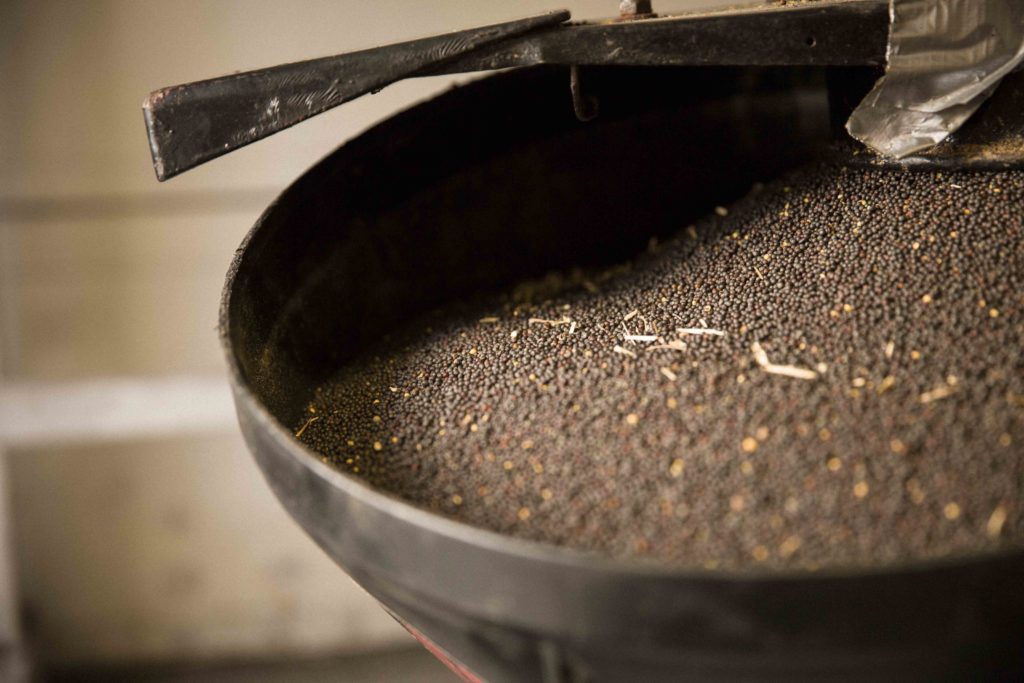
To release the oil is a simple process, where the seed gets crushed in one-tonne batches. The oil is then triple filtered before being bottled and labelled.
It also leaves a byproduct called rape meal which is used as cattle feed. The seed is sown in August/September which then lies dormant until February when it springs to life.
Mark, describing the view from his window, says: “I can see an abundance of yellow flowers.” But it is not just a pretty scene, he explains.
“It looks absolutely gorgeous but I know the effort that has gone into producing that field. It
hasn't grown by chance; it is a result of all the care that has been taken in previous years and generations.”
With increasing prices on top of Brexit changes, farming is not easy. The flip side is that the cost of oil seed rape is at an all-time high, although that means higher input costs for Mark. “I buy at market rates and those prices are continuously going up and we haven't even got to the drying season yet.
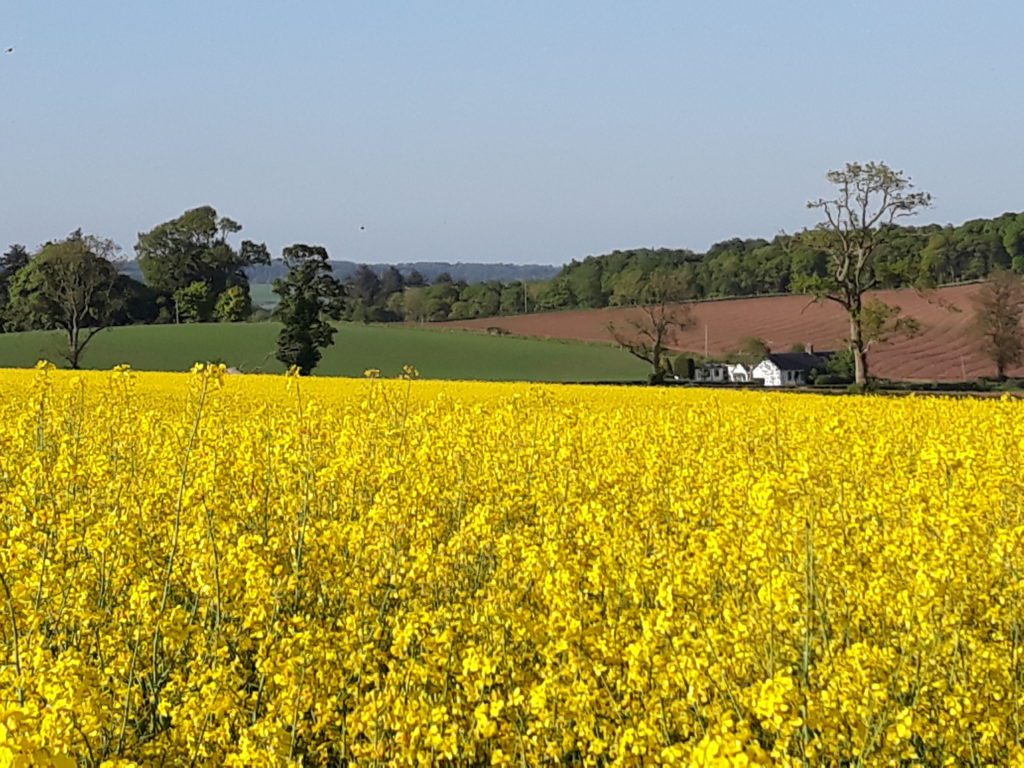
There will be a lot of farmers not wanting to bring crops in until it's as close to the correct dryness level as possible, as drying is an additional cost.”
The ongoing situation in Ukraine has also set alarm bells ringing for Mark especially when he discovered that 57 per cent of the world's supply of sunflower oil comes from Ukraine.
“That is a staggering number. I had no idea, even though we sell oil."
Large food manufacturers who mainly use sunflower oil are now switching to rape seed oil due to its availability.
There are two grades of oil that can be made from rape seed, cold pressed, which is a premium product, and a more standard product called rape seed oil which is made by a more industrial process.
He explains that, although there is a market for standard rape seed oil, he isn't in a position to swap to produce it even if he wanted to. “It's not something I would entertain looking at. We have gone into a certain sector of quality oil and that is what I like producing.
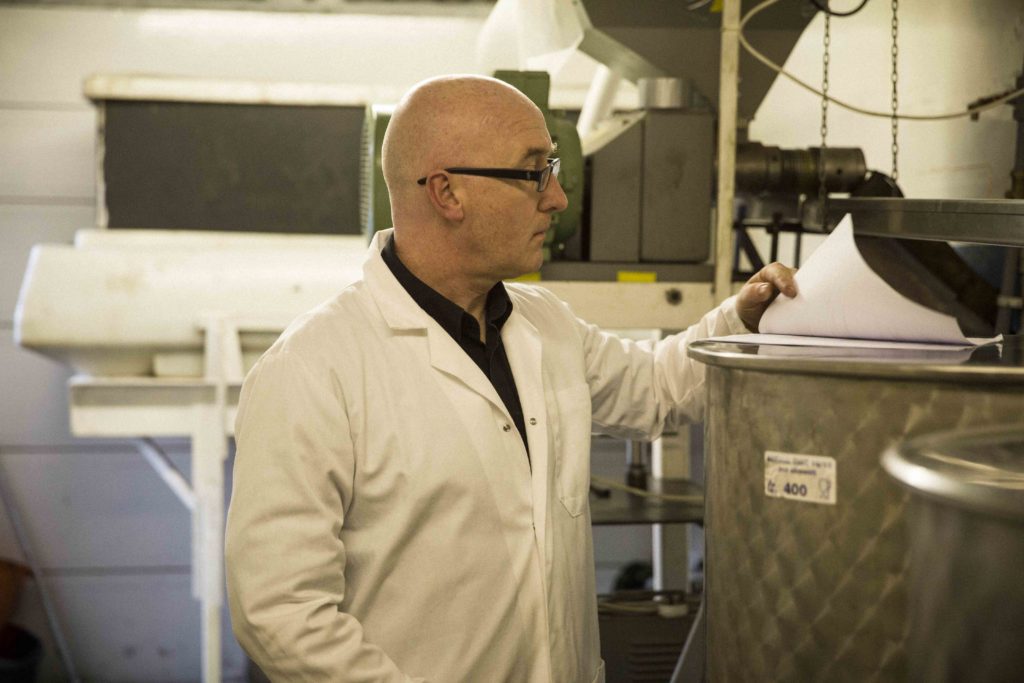
We farm to a high standard and produce top-quality products. It is a different process which needs different equipment and it would take a couple of years to get a plant up and running."
Mark has had an early glimpse of how the Ukraine situation will impact on the food sector as he is currently receiving multiple requests enquiring about oil.
"It is concerning getting calls from Germany, as they are a big producer, and, if they are already looking outwards, I'm worried."
However, being a mixed arable farm spreads the financial risk. Mark quickly learned that farming is a functional but efficient circular economy.
He says: “The cows are kept inside in the winter and will bed down on our straw, eat our silage supplemented by our bruised barley and rape seed meal. There is nothing brought in to feed these cattle and then obviously their dung is used to fertilise."
He stocks around a month's worth of cold pressed oil but maintaining that level is becoming increasingly difficult as demand soars.
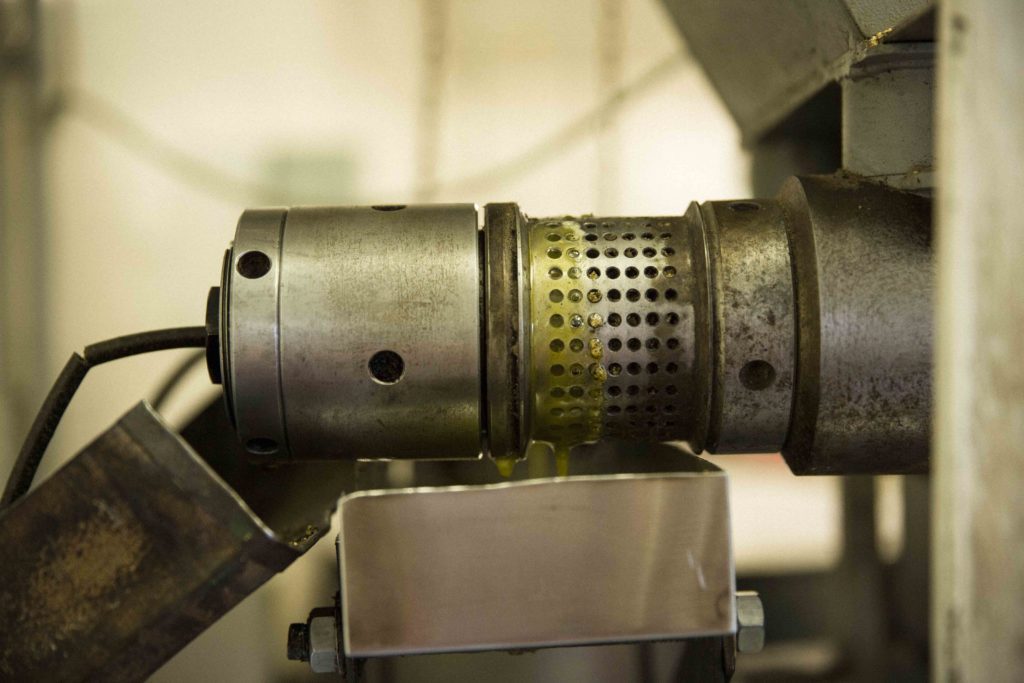
He sells to farm shops and delis and restaurants but also supplies the supermarket, Waitrose.
Despite increased demand, Mark can produce only a limited amount of oil until the next harvest.
“I don't know how it is going to resolve in Ukraine, but, hopefully, it will and we can rebuild it. Unfortunately, the situation is going to be key for the next couple of months.
“I have spoken to a few of our wholesalers recently because their orders have gone up and we have got
to be careful to look after our core customers first, so we can take them through this.
It is a case of supporting people who have been with you from the start. I don't want to be one of these comical characters that you see on The Apprentice, looking for every single penny.
If you enjoy it and treat your customers well, you'll make your margin. I just want to look after the customers who have
been loyal to me."
During lockdown, "business just fell away, we lost half our business overnight. But we were in a position where we weren't sitting on massive piles of stock, so we just didn't produce as much".
However, he was grateful to spend time with his family.
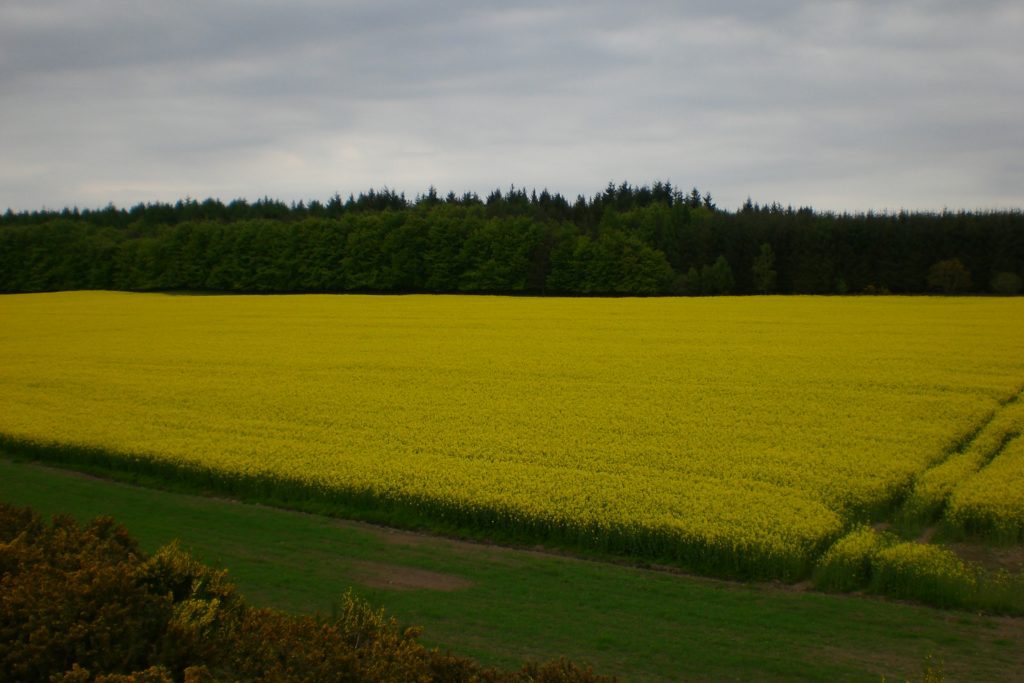
Mark and Maggie have two boys, Harrison, 6, and Alfie, 3, who love life in the country, especially Alfie, who is obsessed with everything to do with the farm and machinery.
Mark adds: “My wife and two boys never left the farm, but we were out in the fields everyday going for walks. Although they weren't seeing people, they weren't cooped up, so we were extremely privileged."
Mark has another venture in the pipeline, setting up a micro distillery producing Inchaffray whisky using spring barley which they grow on the farm.
"It is about adding value to the farm and doing something you enjoy."
